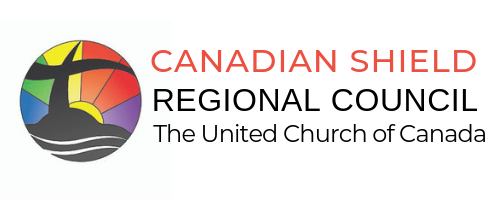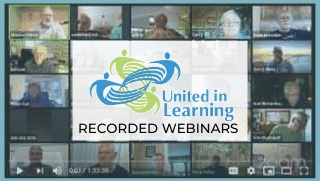
Congregational Support
Quick links to sections on this page:
Archives | Church Hub | Collaboration |Disbanding and Amalgamation | Governance | Property | Maps | Staff
Archives
Good management of records is outlined in section A.5 of The Manual which states that “church records have a historical and legal value,” which necessitates that they be “accurate and complete” and “[kept] … safe [and] secure.” It also states that ownership of the “records belongs to the United Church. They may not be taken or kept by any member, minister or other person…” Moreover, congregations have a responsibility to deposit records no longer in use to the appropriate Regional Councils Archives. (See Section A.5 of The Manual, 2023 / Le Manuel, 2022)
Church Hub
ChurchHub is the new national database for information for every community of faith and all ministry personnel in The United Church of Canada. ChurchHub is part of a significant shift in the life of our church and how we live out our call to ministry and discipleship. It is both a policy that was passed by the General Council to be “regularized as the required process for ministry personnel and communities of faith to search for calls and appointments” and the support structure for communication between the denomination, ministry personnel, communities of faith and members who participate in regional and denominational ministry.
ChurchHub requires a login using a unique e-mail for each account to keep your data safe. We recommend community of faith administrators use an organizational address if possible, such as office[@]firstunited.on.ca or info[@]trinityunited.net, and others use their personal email.
FOR TECHNICAL ASSISTANCE WITH CHURCH HUB CONTACT ministry@united-church.ca
Statistics and Assessment Tools Added in 2021
- The annual blue statistical forms: Revamped with new, more helpful features and feedback options.
- The annual assessment invoices have been added and will be updated regularly.
- Officer and lead Roles can now be updated anytime throughout the year when there are changes.
- Communities of faith will receive additional logins sent to their charge treasurers.
- More roles will be added soon!

Collaborative Ministry
United Church Shared Ministry
Opportunities for shared ministry may present themselves when communities of faith are experiencing declining membership, resources, and financial instability. As communities of faith meet, new ways are suggested for redefining, exploring, and producing positive growth. The key question is: what are the opportunities for cooperation, even as each community of faith continues to develop as a distinct congregation? As communities of faith come together to begin exploring the possibility of sharing ministry personnel, the beginning stages of a Collaboration Agreement may be developed. It may become evident that common issues and challenges suggest there is much to be gained from increased collaboration.
Ecumenical Shared Ministry
An ecumenical shared ministry is people worshipping and serving God in a unified way while still maintaining their denominational identity and connections. It is any combination of denominations sharing a program, mission, ministry, or building. Ecumenical shared ministries take many forms. Faith communities who are looking for fellowship and want to worship together in a caring, welcoming Christian church might consider an ecumenical sharing arrangement.
Disbanding and Amalgamation
A congregation may experience one or more of the following changes during its lifetime:
a) amalgamating with one or more other communities of faith;
b) becoming a single-point pastoral charge, part of a multi-point pastoral charge,
or part of a different multi-point pastoral charge;
c) relocating; and
d) concluding its ministry.
All of these changes require the approval of the regional council and a change to
the covenant between the congregation and the regional council.
(The Manual, 2023 / Le Manuel, 2022 – G.1.3)
Governance
Governance: Conversations with Community Leaders
Governance: Conversations with Community LeadersPDF 40 pages | This resource is a set of slides, divided in four sections: In a Nutshell; Questions for Conversation: Quotes for Reflection: Best Practices. This material is not designed as a continuous presentation, instead it is intended as a resource to engage community leaders in conversations about governance with the aim of making improvements. Use it as a part of a dedicated workshop on governance. Or individual slides can be used in the course of ongoing meetings as an opportunity to stop and reflect on your own situation.
Meeting During COVID 19
Congregations hold meetings to receive information and make decisions. With current provincial restrictions on gatherings of people, the best course of action may be to defer any meetings already scheduled and those not yet called, including the annual general meeting.
If you decide to proceed with a meeting, any electronic method is acceptable as long as the participants have the ability to communicate with each other orally or through typed messaging at the same time. As long as most members have and can use the needed technology, it is a reasonable choice to proceed with a meeting. The congregation must be given advance notice of a congregational meeting, read aloud during public worship. Please see the document linked on the Governance in Congregations During COVID -19 website of The United Church of Canada for more information about meeting requirements.
United in Learning Webinars
Previously recorded webinars on Covid Response
Property
Property
All property of Communities of Faith are held by its Board of Trustees. This includes land, buildings, funds and investments and any other kind of property. The Trustees must comply with the United Church of Canada’s requirements for Boards of Trustees in matters related to communities of faith property. The Region is responsible for making decisions on requests from communities of faith in buying, selling, leasing, and renovating community of faith property and developing a plan to distribute any proceeds within denominational policies and guidelines.
See the Canadian Shield Property Policies Brochure for information.
Staff Support

Melody Duncanson-Hales
Minister, Community of Faith Support
Phone: 1-833-236-0281 Ext. 4
Email: MDuncanson-Hales@united-church.ca
Serves in: Canadian Shield Regional Council
Location: Teleworks from home
Role: Melody provides support for the region by encouraging and connecting communities of faith as they adapt and experiment in changing times.
Contact Melody about: Community Ministries, Congregational Finance, Covenants, Grants, Property, and Transitions - amalgamations, collaboration, closures.
More about Melody...

Diane Matheson-Jimenez
Minister, Community of Faith Support
Phone: 1-833-236-0281
Extension: 6
Email: dmatheson@united-church.ca
Serves in: Canadian Shield Regional Council
Location: Teleworks from home
Role: Diane provides support for the region by encouraging and connecting communities of faith as they adapt and experiment in changing times.
Contact Diane about: Conflict Resolution, Community Ministries, Congregational Finance, Covenants, Grants, Property, and Transitions - amalgamations, collaboration, closures.
More about Diane...

